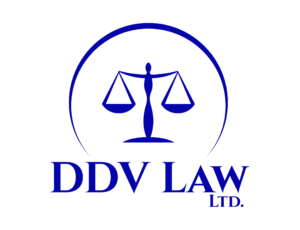Living Trusts

You Can Trust Us:
Living Trust documents can be created and changed at any time and you can transfer all of your assets to the Trust, but continue to use and manage them during your lifetime. After you die, your trustee will transfer ownership of the assets to the beneficiaries named in the trust.
An important benefit of Living Trusts is the speed with which your property can be transferred to your heirs after your death. In addition, a Living Trust is private. Only you, your trustee, and your beneficiaries will know the value of your trust property, how it is to be distributed, and the names of your beneficiaries.
At DDV Law, Ltd., we can help you decide whether a Living Trust is appropriate in your personal circumstances and draft a Trust document that meets your specific goals.
Some benefits of a Living Trust are summarized below, and further explained in the paragraphs which follow.
- Avoid Probate
- Revoke or Change at Any Time
- Quicker Distribution of Property to Beneficiaries
- Reduce or Eliminate Estate Taxes
- Increase FDIC coverage
- Protect Privacy
- Plan for Incapacity
Protect minors, special children, and other dependents
Using a Living Trust:
Like most people, you are likely to understand the importance of a Will, but are possibly not familiar with Trusts. Both a Will and a Trust can be used to transfer your property when you die, but the similarity ends there. A Will has no effect until you die, while a Living Trust becomes operative during your lifetime to manage your assets. While a Will is part of the public record, a Trust is not. Subsequently, it provides greater privacy. Trusts are usually easier to amend than Wills and less likely to be contested by your heirs.
You can use a Living Trust to make decisions about your care in old age. The Trust can specify your preference for care by your family or in a nursing home. If you become disabled or incompetent, your Trust will control who will care for you and how your money will be managed. Without a Living Trust, a court might need to appoint a guardian if you become incapacitated. As with probate, guardianship proceedings can be costly and time consuming. A Living Trust will provide a way to avoid legal proceedings to appoint a guardian.
A Living Trust can also be beneficial in a variety of other circumstances. For example, you can use a management feature of Living Trusts to appoint a professional trustee for the elderly, for inexperienced persons who have recently inherited wealth, and for minors. Living Trusts are useful for those who struggle to find the time to manage their property, such as entertainers, entrepreneurs, and busy professionals.
If you own real estate in more than one state, a Living Trust can help avoid probate in each state. Probate in multiple states increases the cost and time to distribute your property to your heirs.
Creating a Living Trust:
As noted above, you can serve as your own trustee or you can appoint a professional trustee such as a bank or trust company. Most people appoint an individual such as their spouse, a relative, a friend, or their lawyer to serve as their successor trustee.
A professional trustee may be the best choice if your property will be difficult to manage or distribute. The disadvantages of professional trustees are that they may be impersonal and charge annual fees based upon a percentage of the value of the trust. Furthermore, many professional trustees are unwilling to serve if the value of the trust assets is less than $100,000.
The Trust document will describe the duties of the trustee to manage the trust property, keep records, prepare tax returns, and make distributions to the beneficiaries. The Trust document can also designate a successor trustee or provide instructions on how to select the successor.
Transferring Property to Your Trust:
After creating your Trust, you must complete the formality of transferring your property. Our attorneys can assist you in this process. You should, however, become familiar with the process so you can handle the transfer of future acquired assets to your Trust.
Avoiding Probate:
Tax Planning:
Choosing a Trustee:
A professional trustee may be the best choice if your property will be difficult to manage or distribute. The disadvantages of professional trustees are that they may be impersonal and charge annual fees based upon a percentage of the value of the trust. Furthermore, many professional trustees are unwilling to serve if the value of the trust assets is less than $100,000.
The Trust document will describe the duties of the trustee to manage the Trust property, keep records, prepare tax returns, and make distributions to the beneficiaries. The Trust document can also designate a successor trustee or provide instructions on how to select the successor.
Our Practices
Guardianship
The position of being legally responsible for the care of someone who is unable to manage their own affairs
Medicaid Assistance
Medicaid planning consists of selecting the best care, ensuring quality of life and protecting the assets for the elder
Elder Abuse And Exploitation
We have extensive experience in sensitively handling various types of abuse and exploitation cases
Living Trusts
Living Trusts have several advantages over Wills, like avoiding probate and guardianship, maintaining liquidity,
Nursing Home Contracts
Contracts can be confusing and some nursing homes even request illegal or unfair conditions
Probate
Probate is the process by which the Probate Court identifies a decedent’s heirs and determines the validity
Special Needs Planning
Special needs planning involves planning for a child or adult with disabilities to ensure eligibility for

